"When there's fire, there's smoke. And when there's smoke, there's WATWAT."
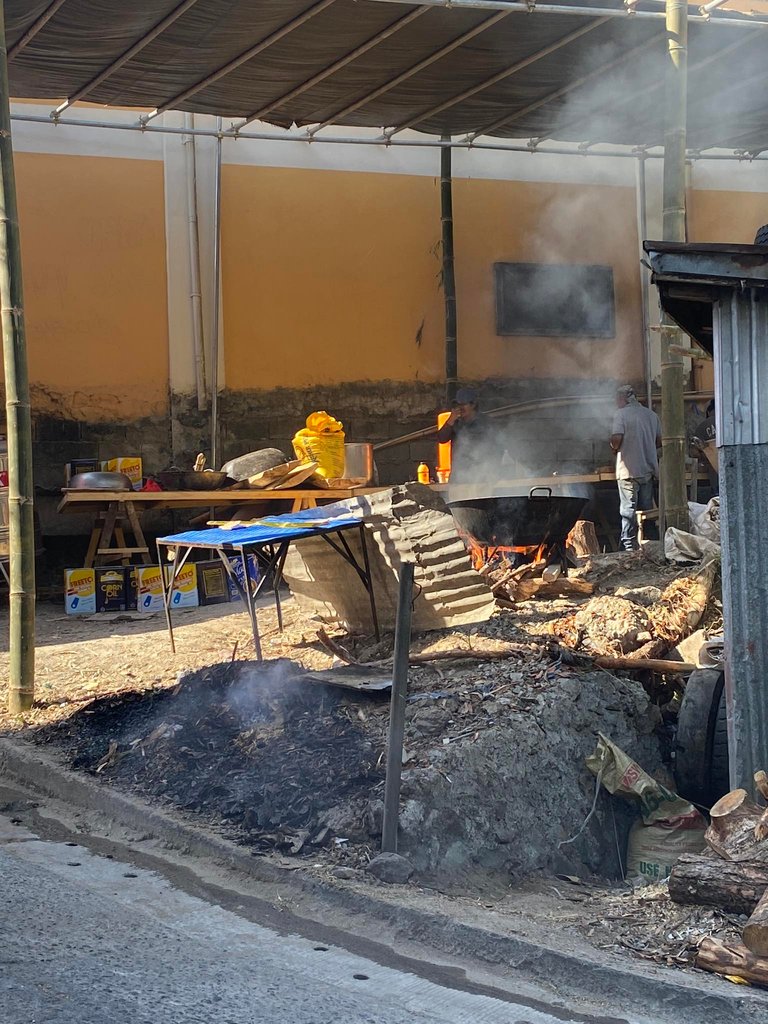
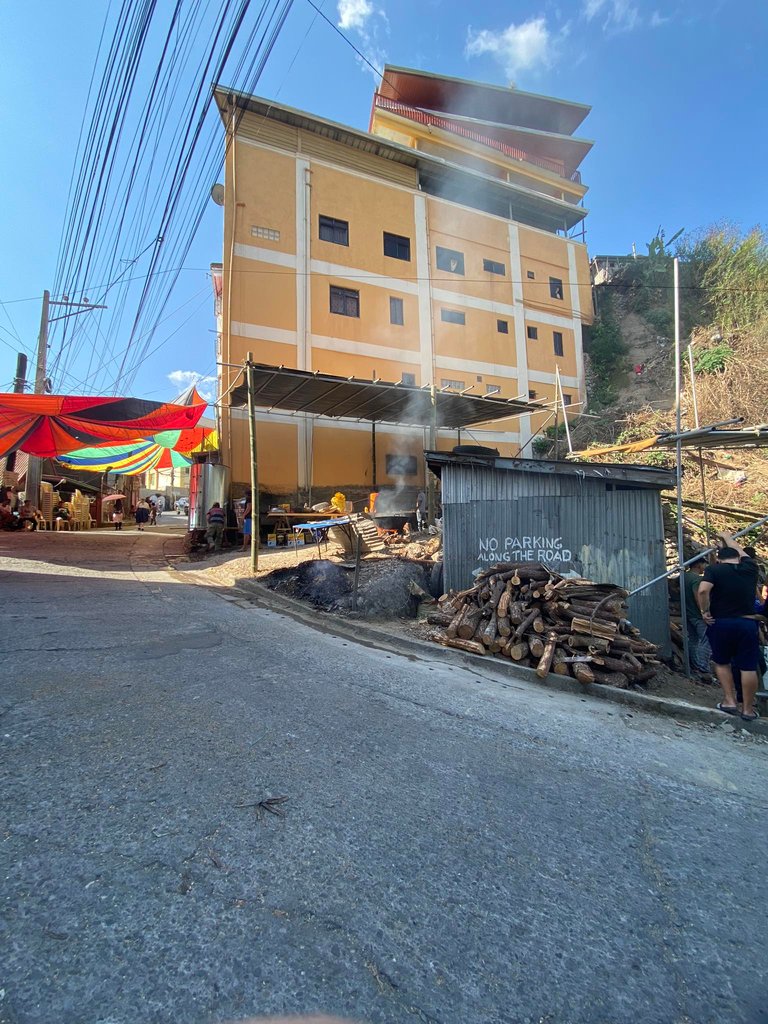
Numerous pig heads, as well as a few water buffalo (carabao) or cows, were slaughtered during feasts, weddings, and rites. Rice is also cooked in large pots to serve all the people who will attend the ceremony.
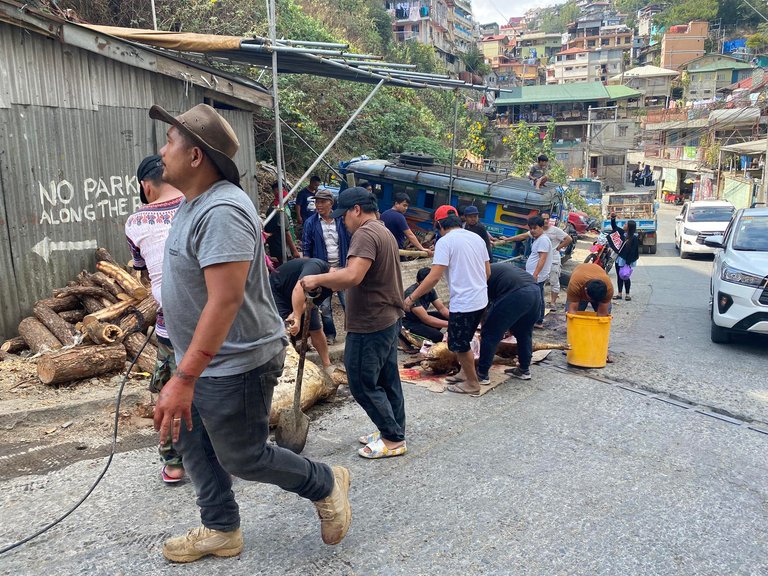
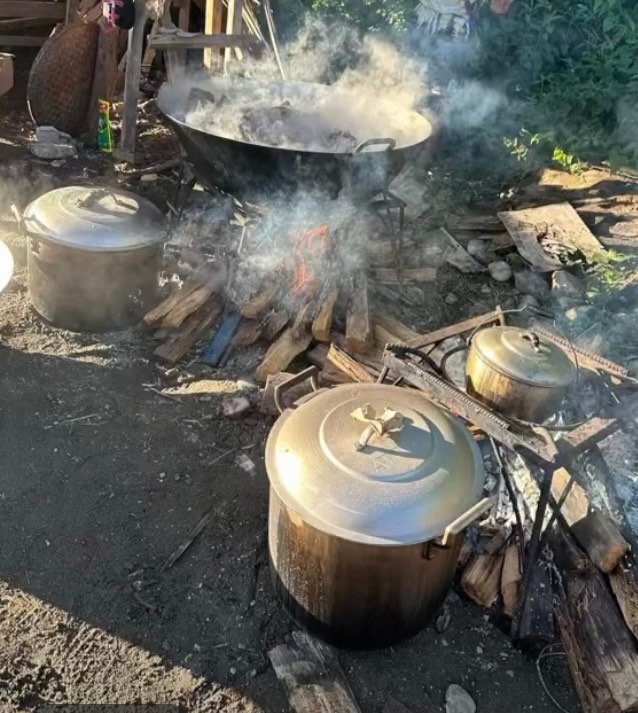
The big question is, Are the Cordilleran people carnivorous? Many of us believe this because we frequently encounter traditional cuisine at feasts, weddings, and rites where the main course is typically meat—lots of meat. Watwat, also known as boiled pork meat, demshang, roasted pork skin, pinuneg, or blood sausages, is served during Ibaloi's traditional celebrations.
When you visit a neighbor or relative's cañao, you might only get a slice or slices of cooked pork, but other options exist. Butchering pigs, cows, chickens, dogs, and ducks in any cañao is not as party as it may seem. Instead, "watwat" is more than just a delectable piece of meat; it is infused with "luck." A "new age" Igorot may enjoy its fresh, natural meaty taste. While it burdens the host, it also distributes wealth to the clan and community.
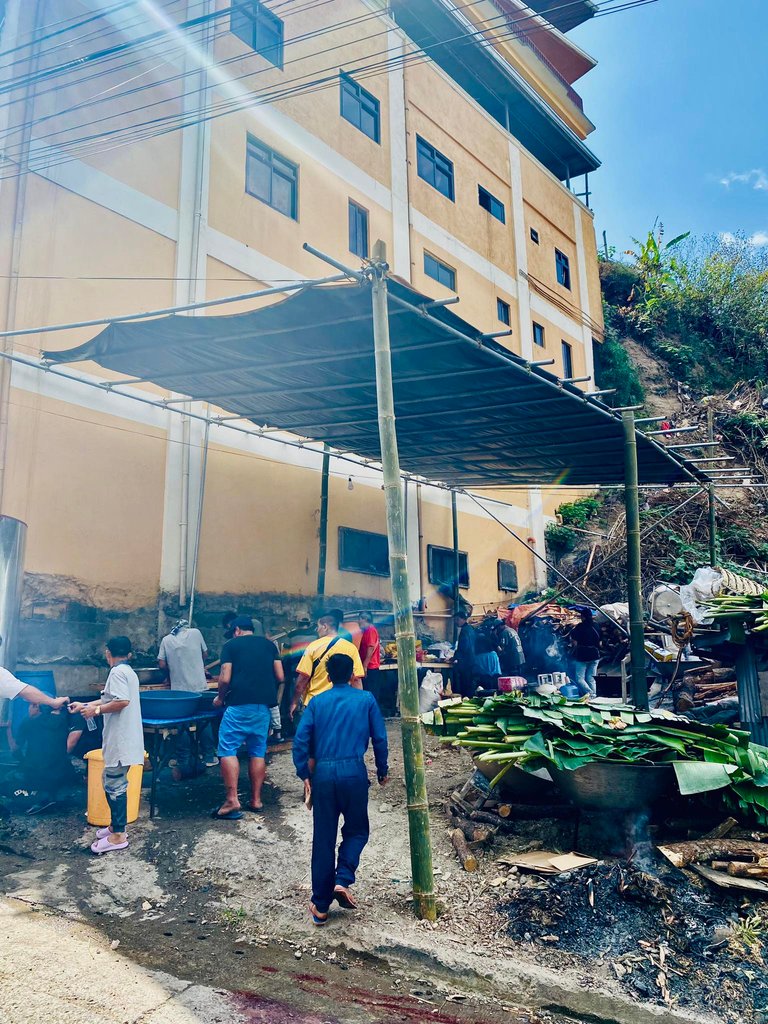
During cañao, the "manbunong," a native priest thought to be a chosen one, prays to God (Kabunian) and the spirits to provide the host family luck, blessings, and tranquility. He then asks the spirits of the "manbunongs" who have died away—actually his predecessors—to assist him in completing the assignment. Since most "manbunongs" are men, this is a male-dominated group. Afterward, he calls the spirits of the deceased in the community and family to share in the meal being served. There is a minute of quiet before the "watwat" is distributed since the called souls should eat first.
While it may appear complicated, preparing "watwat" may be easy for onlookers. Initially, the pig is put to death by "iwik," which involves stabbing the wretched animal in the heart with a sharp stick. Before the pig ultimately dies, it will be screaming in agony. The piercing squeal of the pig also invites the neighborhood. The pig's head must be on the side of the host's doorway. The animal's fur is then burned and cleaned. It is sliced into large pieces and placed on the "apay," ground-up grass or ferns. Rule! The pig's head should still be facing the host's house, and the bottom part of the freshly cut grass should be pointed in that direction. After that, the meat is boiled in a large copper pan called a "silyasi" without any salt added since this could induce a chemical reaction with the pan's metallic element, altering the soup's flavor. The cooked meat is then placed on the "apay" to be cut into smaller pieces. The lean and fat portions are cut into a triangle shape with a sharp, thin edge. The bony ones are chopped to a standard size. The "watwat" is now prepared for distribution.
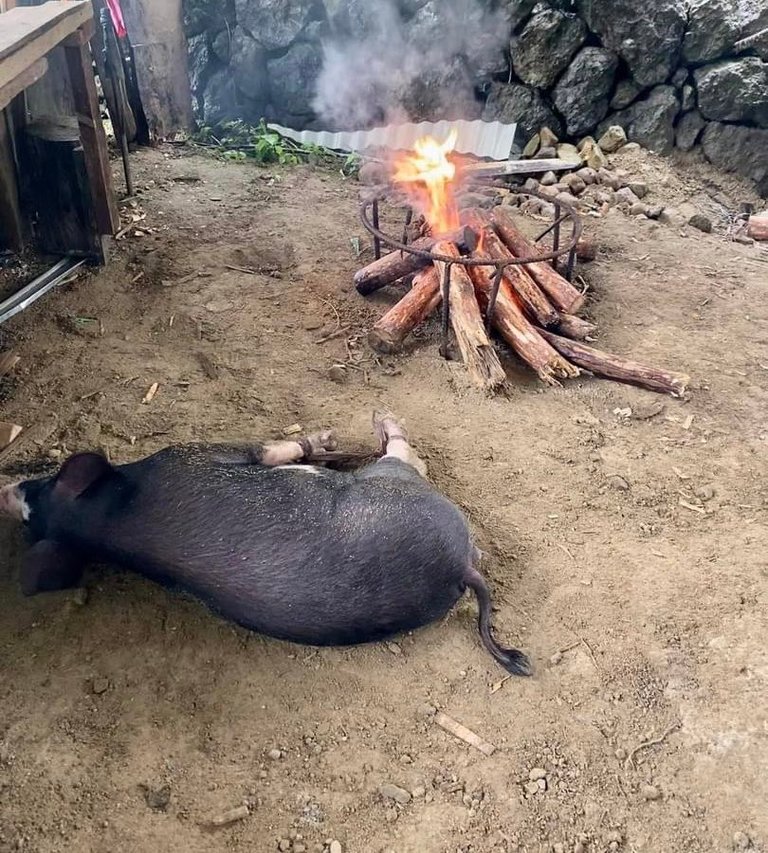
However, have you yet noticed the number of pork slices you have been given? Or can you have as many as you want? Once more, most "new age" Igorots might not be aware, yet there is a procedure for allocating a piece. In this instance, age does matter. Children are given a portion of "watwat," which is a lean and meaty portion. Middle-aged persons have three: a lean, a fat, and the layers from the belly. Late teens and young adults have two: lean and fatty. The senior citizens come in last and receive the most because they are the ones who get a slice of liver added to the previously mentioned later age group. A slice of "pinunneg," or blood sausage, is added to the above "watwat" categories whenever possible. In any case, these can differ based on the quantity and variety of recipients and the community or family practice.
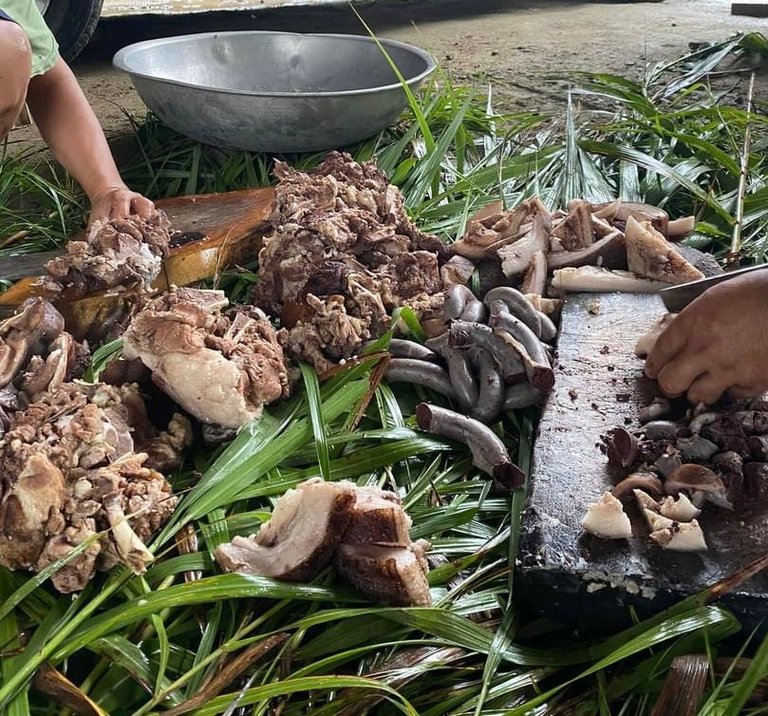
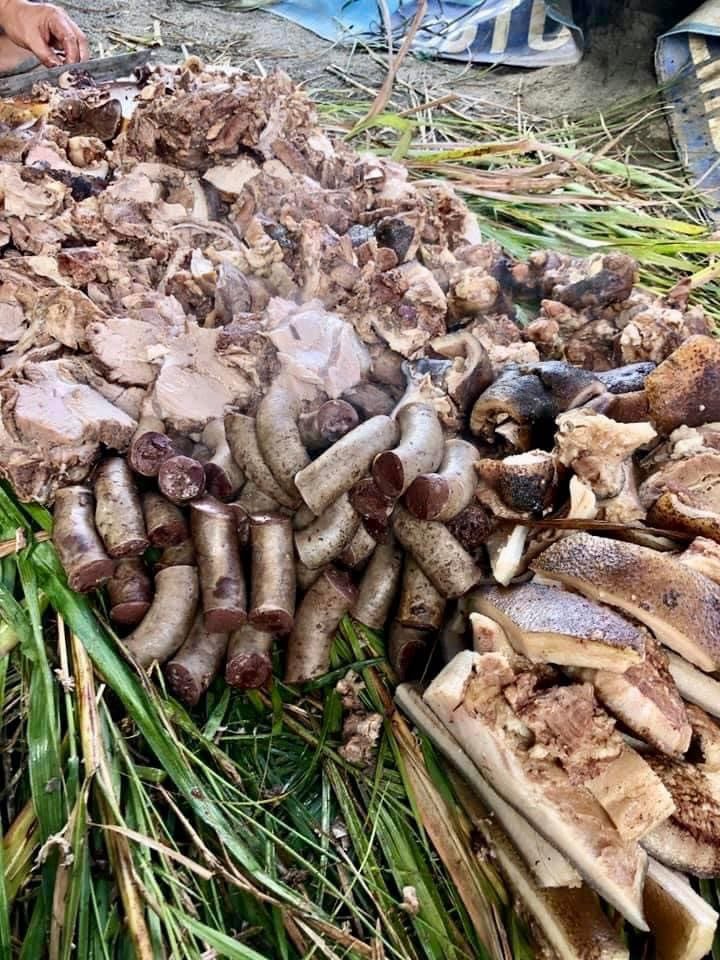
Thanks for sharing this culture of us people in Benguet. Watwat is life.
@sagarkothari88 vote
Congratulations @patriz1228! You have completed the following achievement on the Hive blockchain And have been rewarded with New badge(s)
Your next target is to reach 400 upvotes.
You can view your badges on your board and compare yourself to others in the Ranking
If you no longer want to receive notifications, reply to this comment with the word
STOPCheck out our last posts: